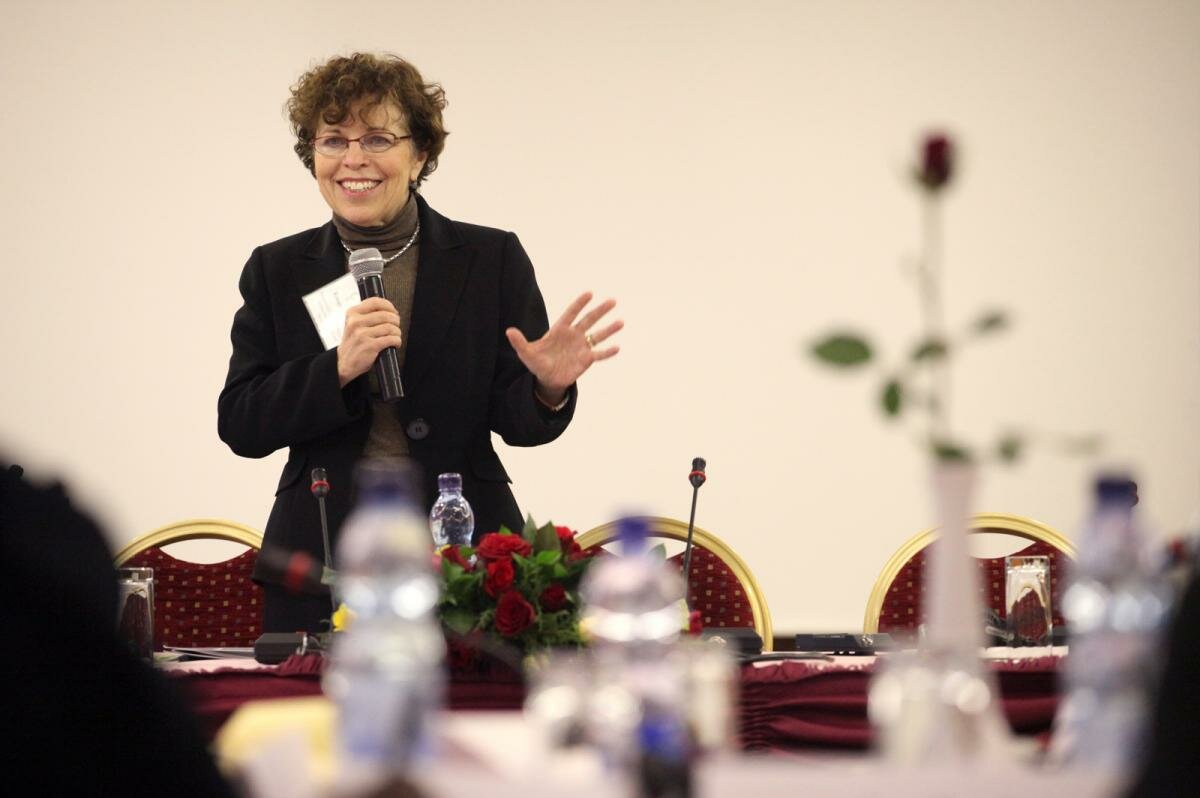Wisman responds to Economist article on foreign aid in Sierra Leone
 MLI Director Rosann Wisman Photo Credit Dominic Chavez |
Sometimes the media doesn't do its reporting. And sometimes it's good to point that out. This happened recently in a short Economist article on Sierra Leone's free health care initiative, which can be found here. The writer's bias clearly came through -- that the West knows best, and a developing country's poor infrastructure means that their leadership cannot be taken seriously. We disagree, of course, and here's my response:
The Economist produces some of the most insightful journalism in the world. But its reporting on this article on free health care in Sierra Leone was far below its standards. It relied on being glib as opposed to substantive; it assumed things as opposed to reporting on them.
Rather than blasting the Sierra Leone government as inept, local ownership as a “fantasy”, and “old style aid” as the wave of the future, it should look again at how the Ministry of Health and Sanitation in Sierra Leone is leading health reform and building sustainable health systems for the future.
Even an “old style” aid provider like Mercy Ships sees the value. From its own website, Mercy Ships says: “Plans have been established for how Mercy Ships will work alongside WHO, UNICEF and other NGOs, so that efforts are not duplicated and to take advantage of synergies. The work is aligned with strategic and tactical plans formulated by the Sierra Leonean Ministry of Health and Sanitation. This is the first time Mercy Ships has signed a health compact with any government.”
Floating hospitals eventually sail away. Lasting and effective aid builds on the political will and dedication of country leaders. Sierra Leone is charting that course.
Join the conversation by leaving a comment below.
Keyword Search
MLI works with ministries of health to advance country ownership and leadership. This blog covers issues affecting the ministries and the people they serve.
Connect with Us
![]()
![]()
Categories
Blogs We Like
- Africa Can End Poverty
- Africa Governance Initiative
- Behind the Numbers
- CapacityPlus
- Center for Global Health R&D Policy Assessment
- Center for Global Development: Global Health Policy
- Center for Health Market Innovations
- Global Health
- Global Health Hub
- Global Health Impact
- The New Security Beat
- PAI Blog
- RH Reality Check
- Save the Children
- Transparency and Accountability Program
Contact Us
Please direct all inquiries to
